The 2024 Summer Olympic Games are set to open in Paris, France, on July 26.
New to the games are breaking, a lively form of dance turned competitive sport, and kayak cross, a contact sport in which four kayakers simultaneously race against each other on a course.
Various historical venues across Paris will house select games, including volleyball at the Eiffel Tower Stadium and equestrian events at the Palace of Versailles. Surfing will be hosted almost 9,800 miles away from Paris in Teahupo’o, Tahiti, a French Polynesian island in the South Pacific.
The 3.7-mile stretch of the Seine River lining Paris will also set the stage for the Olympics, hosting the opening ceremonies, triathlon, and swimming marathons. To combat the polluted nature of the river, there is an ongoing $1.4 billion effort to clean the Seine before the games start.
However, Paris’ preparations have been met with pushback. Ahead of the games, the city removed thousands of homeless people from the capital, relocating them in an alleged ‘social cleansing’ campaign, as reported by The Guardian. They placed the ‘undesirable’ population in the Île-de-France region that surrounds France, including asylum-seekers, families with children, and people suffering from drug addiction.
This year’s Olympics also take place against the backdrop of major world conflicts, stirring controversy over which nations should have a place in the competition. Russia, which has been banned from the 2024 Olympics, in light of its ongoing war against Ukraine, has released a retaliation campaign flooding the internet with deep fakes warning of upcoming terrorism and violence at the games.
As a part of Stanford’s Spring Foreign Correspondence course, students set out to profile prospective Olympic athletes. From a Singaporean equestrian who doubles as an antitrust lawyer to a future Duke University student joining South Sudan’s basketball team for their Olympic debut, the athletes spoke about their journeys to the coveted games and what it means to represent their countries on a global stage.
—Helena Getahun-Hawkings and Faiza Ashar
Khaman Maluach, South Sudan, Basketball
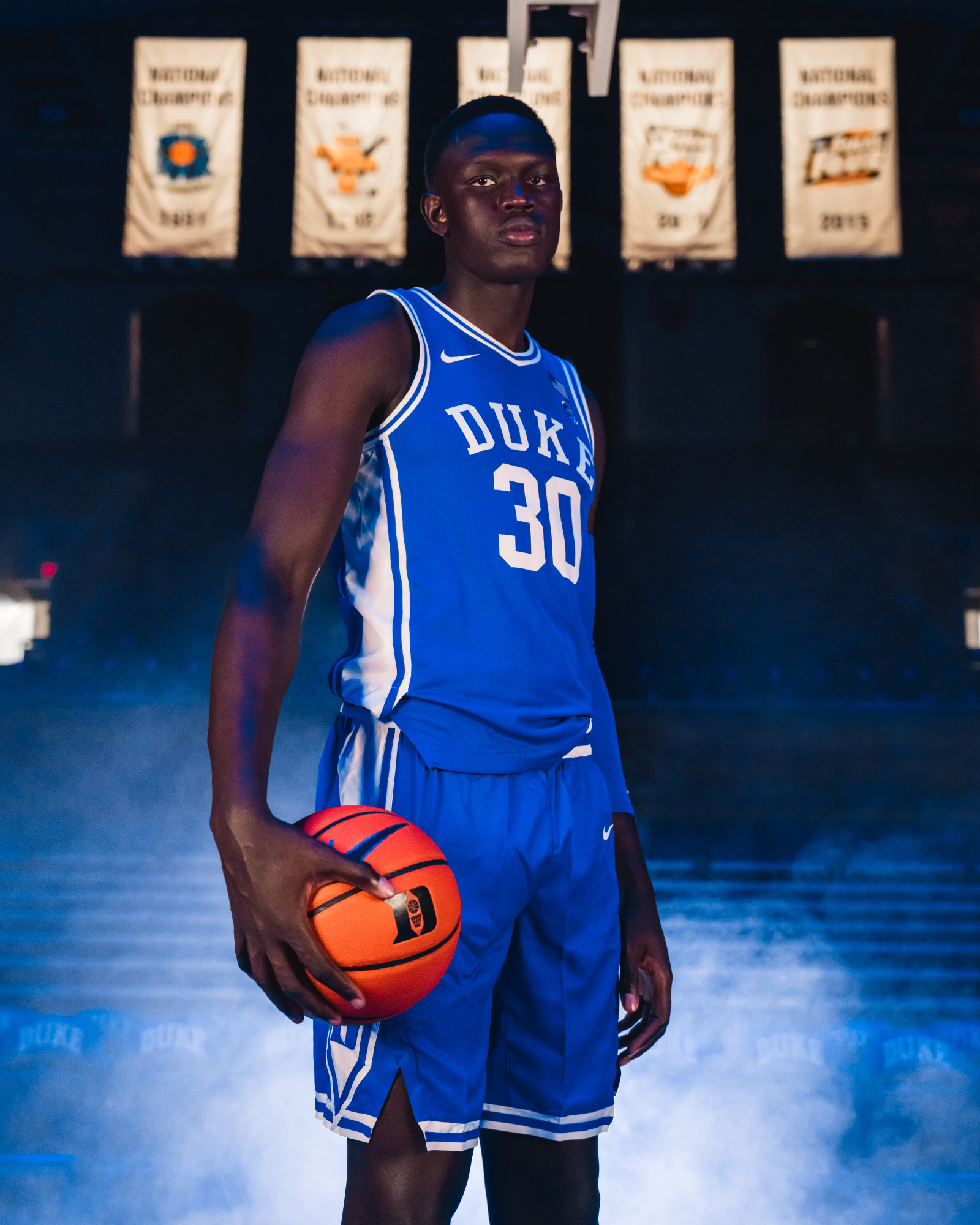
By: Raina Moseley
Before Khaman Maluach can kick off freshman year at Duke, he will shoot baskets for South Sudan at its first Olympic games.
Yet for now, his mind rests in the present. “I stay where my feet are,” he says.
Right now Maluach’s size 17 feet are in Senegal, at the NBA Academy where he has boarded, trained and studied for the past 3.5 years.
It’s at the Academy where wonder about his homeland grew – what it looked like to be surrounded by his people. Maluach missed that growing up in Uganda as a refugee from his war-afflicted birthplace.
Now at 17, Maluach, a 7’2” center, stands as a soon-to-be Olympian with his South Sudanese national team. South Sudan became a country only 13 years ago.
News about home often speaks to one narrative – crises and conflict. “It makes me sad in a way that pushes me and motivates me so that I can do a lot for my country,” he says. ” If I can make this, I can change a lot of other lives.”
Maluach dreams to make the NBA. And he wants the world to see South Sudan.
“We take care of each other. We’re tall, we’re darkskin. And we’re great people. Upcoming country.”
Andrej Stojakovic, Greece, Basketball
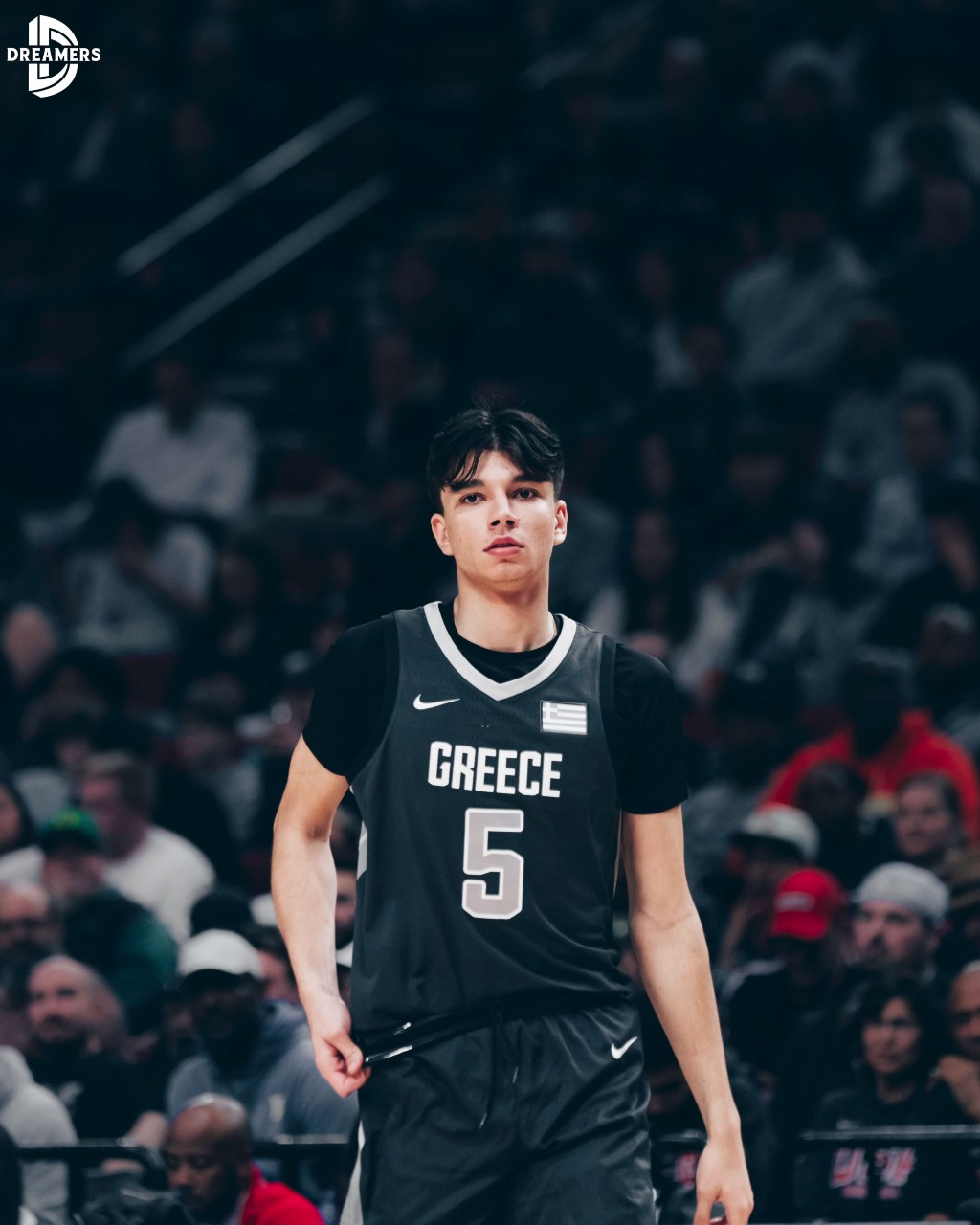
By: Ells Boone
Greece Basketball’s Andrej Stojaković is a 19-year-old freshman at Stanford University. He’s also vying to be the youngest member of the Greece National Basketball Team at this summer’s Olympics.
However, Stojaković’s story goes much deeper than that. He is eligible to play for three countries — Greece, Serbia, and the United States — but chose the Greek national team because of preexisting relationships with the coaching staff, an earlier path to playing at large-scale events like the Olympics, and his time spent playing with the Greek junior national teams. The opportunity to play with some of his childhood idols such as NBA superstar Giannis Antetokounmpo also played a large role.
His father is Peja Stojaković, the most decorated Serbian basketball player of all time, so his decision to represent Greece caused major headlines back in Eastern Europe. His mother, though, is Greek, and Stojaković was born and raised in Athens before moving to the U.S. after middle school during the twilight of his dad’s NBA career.
Today, he is training hard on Stanford’s campus in preparation for Greece’s European Championship Qualifying Tournament in June, followed by the Olympic Training Camp in July where he hopes to earn a spot on the final roster for Paris.
When asked what it would mean to be selected for the national team, Stojaković replied: “It’d be amazing. Just getting to put that jersey on, obviously I understand I’ll be the youngest on the team but getting to practice with those guys, even if it means I sit for most of the games on the bench, just getting to have that experience in Paris and see all the other Olympic athletes in the village will be a tremendous experience for me.”
Pauline Brunner, Switzerland, Fencing
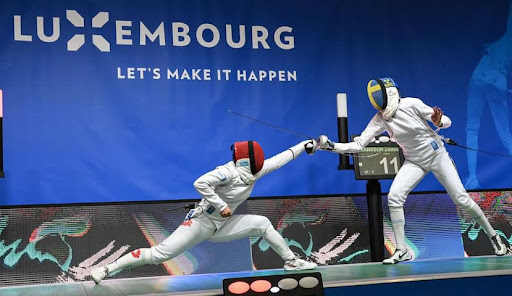
By: Alana Belle M. Tirado
When Pauline Brunner was six and a half years old, she felt that fencing was the sport for her. Her feelings were on point: she is now the sole Swiss fencer with a ticket to the 2024 Summer Olympics in Paris.
Brunner’s childhood home in Bern was a five-minute walk from a nearby swimming pool, which happened to be located next to a fencing place. “I was just going with my mom and brother to have fun at the swimming pool, but I wanted to try fencing, and I liked it.”
She continued to sharpen her fencing skills throughout primary and secondary school. “I did the Youth Olympics in 2010 in Singapore. It was a really great experience, and I really hoped that I could go to the real Olympics someday.”
Brunner is competing in the women’s individual épée event. Other styles of fencing include sabre and foil. “Other styles try to make the other attack and have a more defensive play. My game is mostly based on attack and taking the initiative,” she said.
The fencing team practice varies between 12 hours to 30 hours a week. Brunner meets with a trainer, practices with sparring partners, and analyzes her videos.
The COVID-19 pandemic, not qualifying for the Tokyo Olympics, and injuries thwarted her Olympic ambitions, but Brunner told herself to never give up.
“I asked myself, ‘Do I want to continue fencing?’ I planned for the next three to four years. I would just give my all for fencing and then see. I really made a lot of sacrifices for this and I managed to qualify. Even if I didn’t qualify, I wouldn’t have regretted it because I really gave it my all.”
With her great success on the international stage, Brunner plans to continue fencing through the 2028 Olympics, and then become a trainer.
“If you have a passion for a sport, you should go for it,” she said.
Kateryna Pavlenko, Ukraine, Breaking
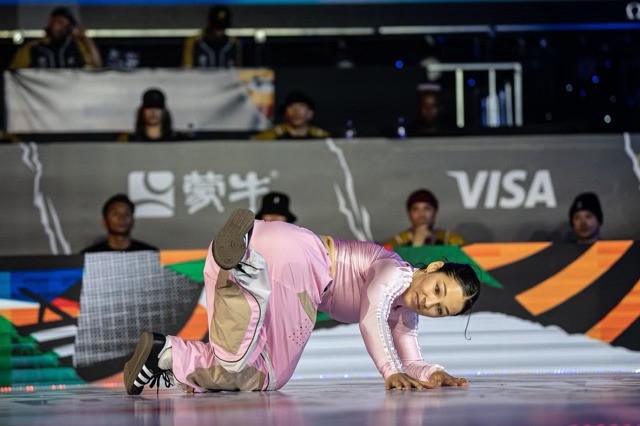
By: Hannah Poukish
Kateryna Pavlenko, 29, is vying to be the first Ukrainian to ever breakdance at the Olympic Games.
Pavlenko grew up in Kharkiv, Ukraine, the second-largest city and hip-hop capital of the country. In her early teens, she became obsessed with the sport. She started traveling to the other side of the city, a full 90-minute train commute, to take breaking classes after school.
And soon, she started winning competitions. First Outbreak Europe, then BREAKKIDZ and several other battles across Europe. In 2021, she moved to the U.S., eventually landing in Los Angeles. Now, Pavlenko is one of five members on Ukraine’s breaking team.
This summer, breaking will make its debut appearance at the Olympics. The newest sport on the largest international stage will feature 16 b-boys and 16 b-girls from around the world. Pavlenko must perform well at qualifying competitions in Shanghai, China and Budapest, Hungary to claim a spot in Paris.
She hopes she can make Ukrainians proud while war rages on back at home. Since Russia invaded Ukraine in 2022, she has lost several family members and nearly a quarter of her hometown has been reduced to rubble.
“I want to represent my country because that’s where I grew up, that’s where I started breaking, that’s what built me as a human, as a woman,” Pavlenko said. “I want to rep the country which raised me.”
Odunayo Adekuoroye, Nigeria, Wrestling
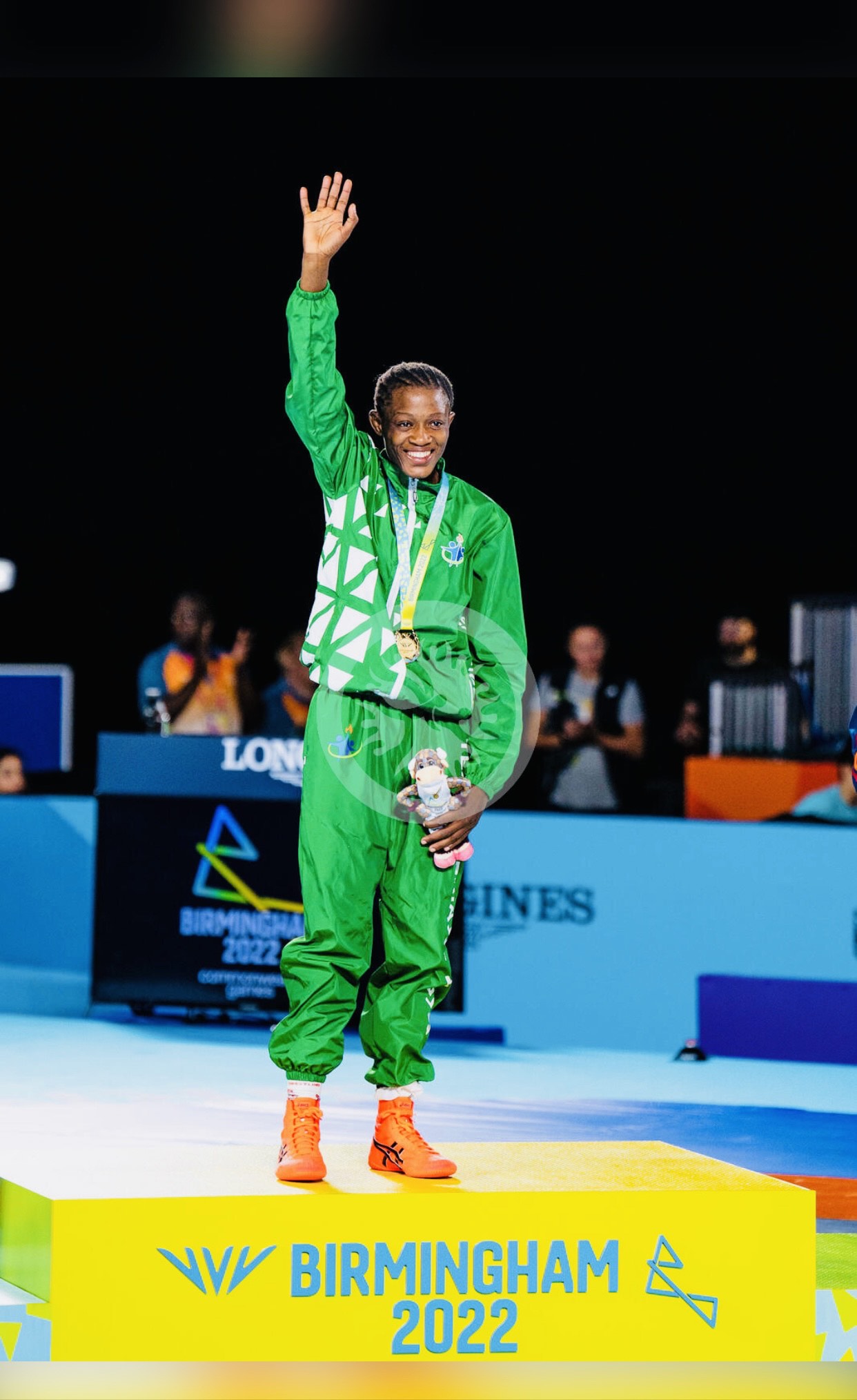
By: Jacqueline Munis
Nigerian wrestler Odunayo Adekuoroye is heading to her third Olympic Games. She is ranked second in the world in the women’s 57kg freestyle category. Adding to her silver and two bronze medals from previous World Championships, she won bronze at the 2023 World Championships, which qualified her for the Games without competing in the Olympic trials like in previous years.
Adekuoroye got her start in wrestling at 16 when a coach asked her to compete in a wrestling tournament, even though up until that point, she ran track. She wanted the opportunity to travel and said yes. Now 31, she is balancing twice-daily training six days a week in preparation for Paris 2024 and her new job as the assistant coach of the women’s wrestling team at Muhlenberg College in Allentown, Penn.
“My mentality is better than before. I feel more mature and more prepared physically and mentally than ever before,” Adekuoruoye wrote in an email.
“I love competing at this level in front of the whole world…I look forward to my best performance yet with God by my side,” she wrote.
Odile van Aanholt, Netherlands, Sailing
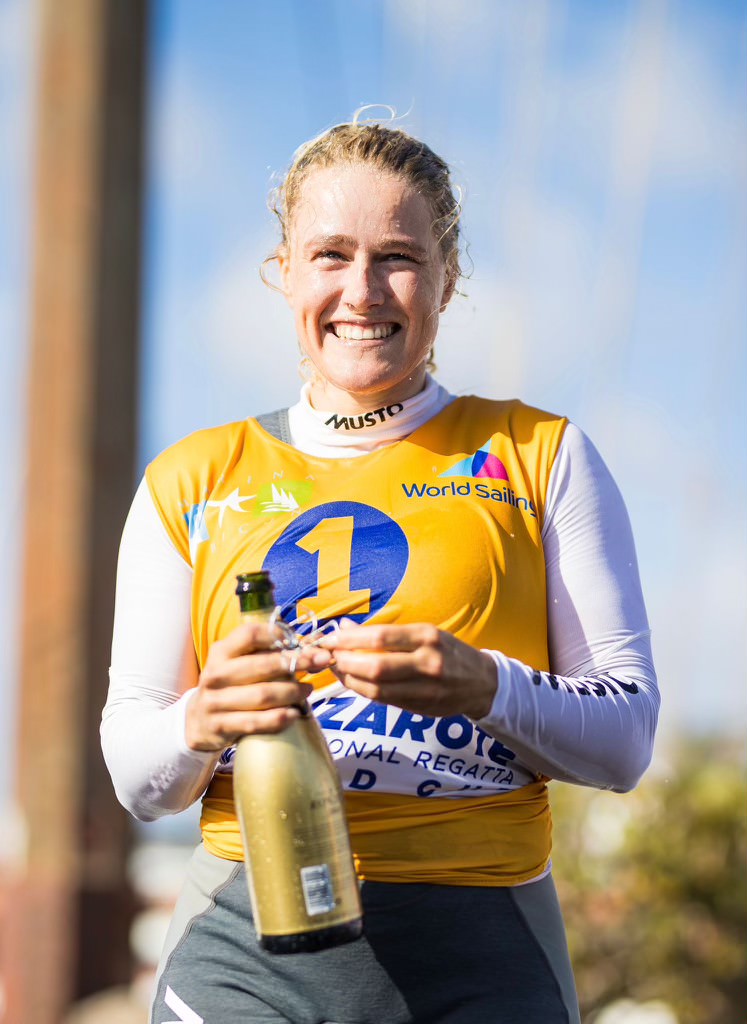
By: Anna McNulty
Odile van Aanholt grew up in a family of sailors on Curaçao, a Dutch Caribbean island. Her father, Cor van Aanholt, competed in the 2000 Olympics; her sister, Philippine van Aanholt, competed in the 2012 and 2016 Olympics; and her brother, Just van Aanholt, will compete in the 2024 Olympics alongside Odile van Aanholt – but for different countries. Just van Aanholt will compete for Aruba while Odile van Aanholt will represent the Netherlands.
Olympic athletes from Curaçao have two options – to represent Aruba, a neighboring island, or the Netherlands, since Curaçao is part of the Kingdom of Netherlands. Odile van Aanholt chose to represent the Netherlands, where qualifying for the Olympics is more competitive, because the pay is better for professional athletes.
At age 12, van Aanholt won her first big sailing championship. “I always took sailing very seriously, but after this win, I thought that sailing might even be my career,” van Aanholt said. Now, as a 26-year-old professional athlete, van Aanholt is gearing up for her first Olympic Games. She is a three-time sailing world champion, so many eyes are on her and her teammate, Annette Duetz, as they compete for women’s sailing in the 49er FX, a two-person high-performance Olympic class. After a lifetime of hard work, van Aanholt is thrilled to achieve her dream of going to the Olympics and to compete at the highest level of sports this summer.
Dairis Bertāns, Latvia, Basketball
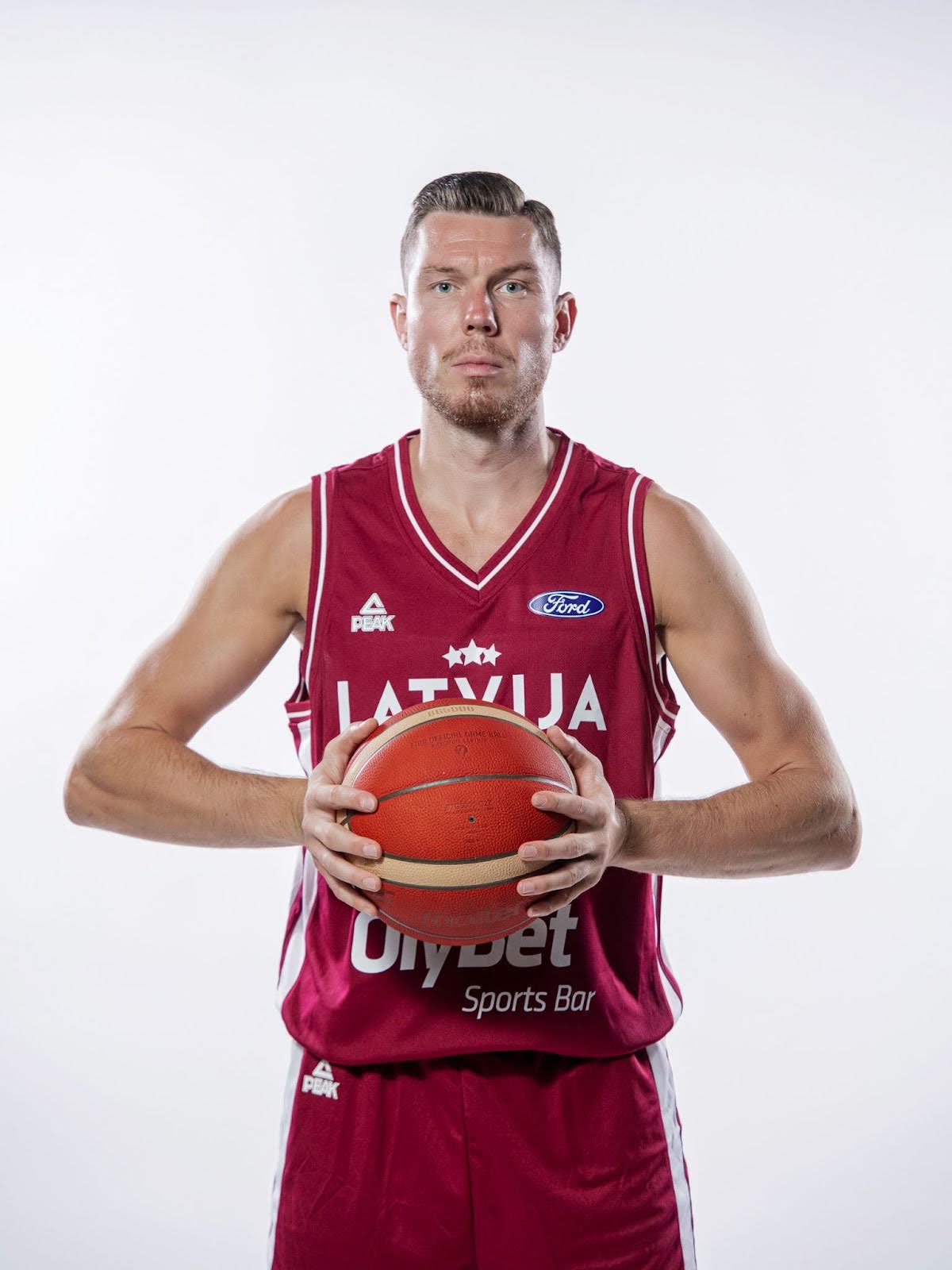
By: Nikolas Liepins
The last time Latvia’s basketball team made it to the Olympics, Franklin D. Roosevelt was President of the United States, the Spanish Civil War had just begun, and Adolf Hitler was Chancellor of Germany, where the games were held that year.
Now, the Baltic nation’s team is just four games away from its first Olympics appearance in 88 years. Dairis Bertāns, a 34-year-old guard from capital city Riga, will begin the qualifying tournament in his hometown on July 2. Bertāns is excited by the chance to represent his country, but he says he isn’t worried about the nation’s near-century hiatus from the Games.
“We are not really thinking about history,” Bertāns wrote. “All we want to do is keep working hard and reach our next goal.”
Bertāns’ has played professional basketball for 18 years in various leagues including a brief stint with the New Orleans Pelicans, but he credits his basketball-player father with getting him into the game early. “I basically grew up in the basketball gym,” he wrote.
A love for the game led him to early global success: he won Bronze at the 2007 U18 European Championship, captured the 2018 Italian League title with Milano, and earned 5th Place in the FIBA World Cup 2023.
Despite his decorated trophy cabinet, Bertāns always seems to chase the next adventure, “thinking about next goals,” he wrote in an email. “One step at a time.”
Caroline Chew, Singapore, Equestrian
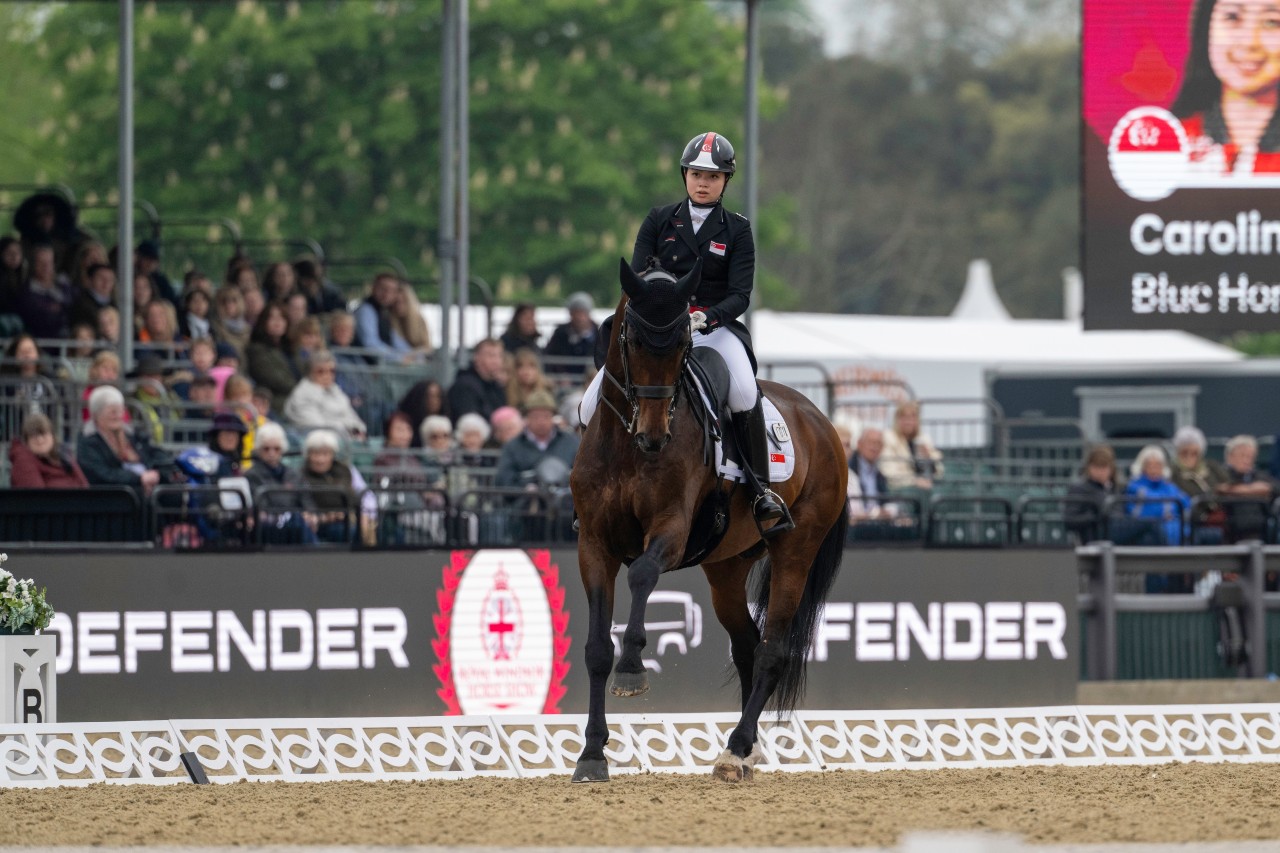
By: Sonja Stevenson
As a full-time antitrust lawyer in London, Caroline Chew, 32 – who will also compete in the discipline of dressage, or “horse ballet” for Singapore in this summer’s Olympics – alternates one week at the office and one week remote from the stables to accommodate her training schedule.
“It’s an intense job, but you find ways and supportive colleagues to help you balance it,” she said.
Chew began her Olympic journey at the age of six, when her mother started Chew and her three older siblings on riding lessons in an effort to get them outdoors more. The equestrian scene in Singapore is a small but passionate one.
“It’s difficult to get it off the ground. There’s a lot of infrastructure that you need to succeed in any kind of horse sport, and that’s an ongoing work in progress,” Chew explained.
Chew said she feels privileged to compete as Singapore’s first equestrian in the Olympic Games. Her Olympic debut in 2020 ended with an elimination from the dressage Grand Prix after a freak accident in which her then 17-year-old gelding, Tribiani, got a cut on his lip.
Though her last experience was traumatizing, she is excited to be on the Olympic stage again in Paris with her stallion Zatchmo, who she described as a talented and powerful horse.
“I’ve got a good team around me, so we’ll be fine,” she said.
Aziz Abbes Mouhiidine, Italy, Boxing
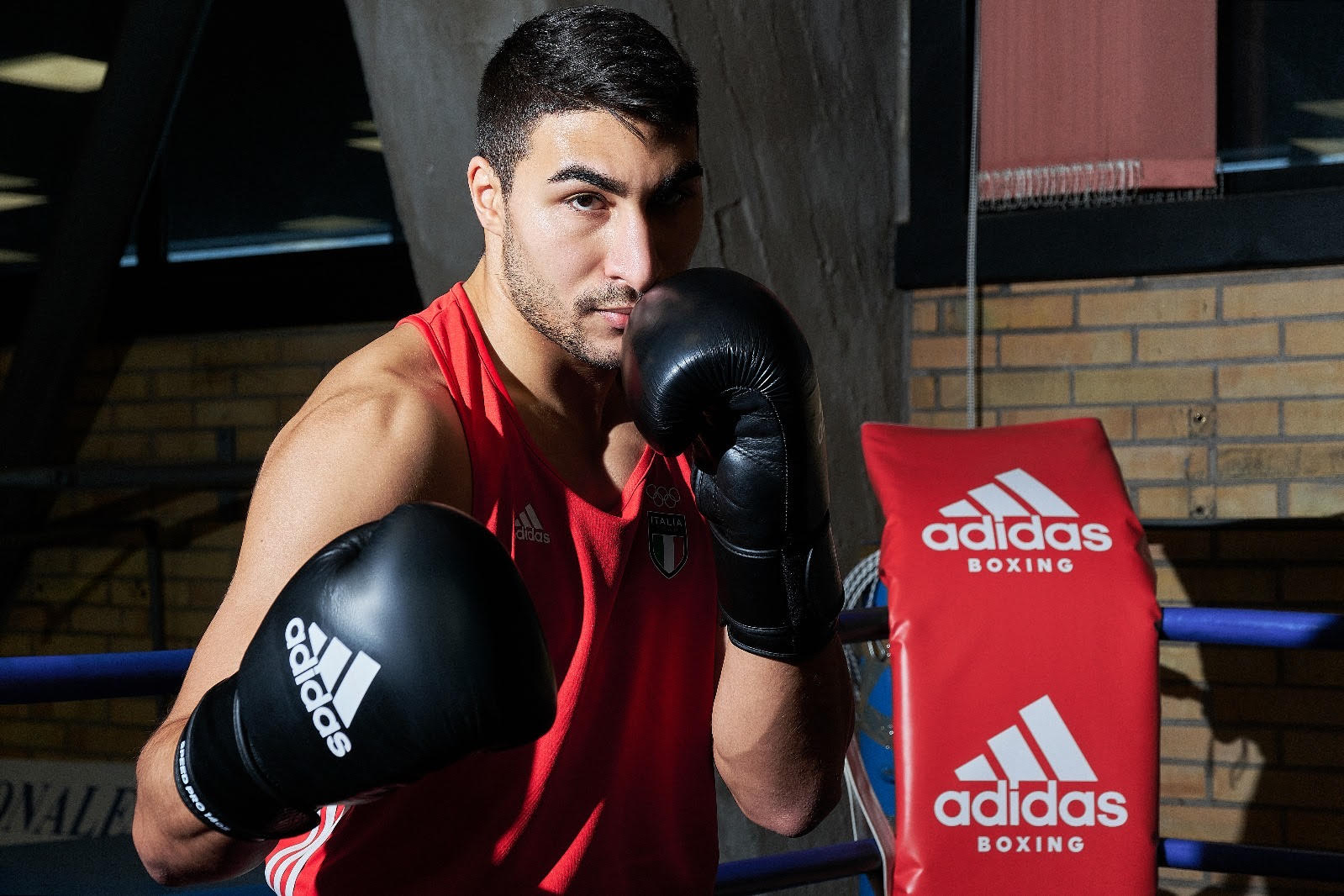
By: Francesca Bini
As an Italian boxer taking part in the Olympic Games for the first time, Aziz Abbes Mouhiidine, 25, can’t wait to step into the ring and on to the podium this summer in Paris. He’s already envisioning the exciting matches and his adrenaline is pumping. “It’s a dream coming true since I was very young,” he said in a telephone interview.
Mouhiidine was born and raised in the region of Campania, Italy, in a multicultural family with a Muslim father of Moroccan origin and a Christian Italian mother. He discovered boxing at the age of eight, when his father showed him Ali, the biographical film of American boxer and activist Muhammad Ali played by Will Smith. Since then, Mouhiidine has been trying to imitate him both in his athletic and social life. Along with his sport career, he is engaged with the community as a policeman.
He has a very close relationship with his family. “My mother has always supported and encouraged me, but when I fight, I fight above all in my father’s memory. Going to the Olympics was both of our dreams. It’s my first Olympics and I hope to do well,” he said.
The path to Paris was not easy at all. Mouhiidine recalls the hardest moments being those when he lost his father, and when he failed to qualify for the Tokyo Games in 2020, both of which truly devastated him.
“I didn’t want to know about boxing anymore, I stayed away from it for a couple of months. But then I remembered of the promise I had made to my father, the sacrifices my parents made for me, and that’s when the flame of boxing was rekindled. Also thanks to this I am who I am today.”
With two workouts a day, five days a week, Mouhiidine strives to find a balance between sports and university. He is graduating from “Universitas Mercatorum” in Rome, with a bachelor’s degree in political science and international relations.
After the Olympics, he has the dream of entering the world of professional boxing. “I’d like to bring Italian boxing back to the highest levels, where it deserves to be,” he concluded.
Levi Ruivivar, Gymnastics, Philippines
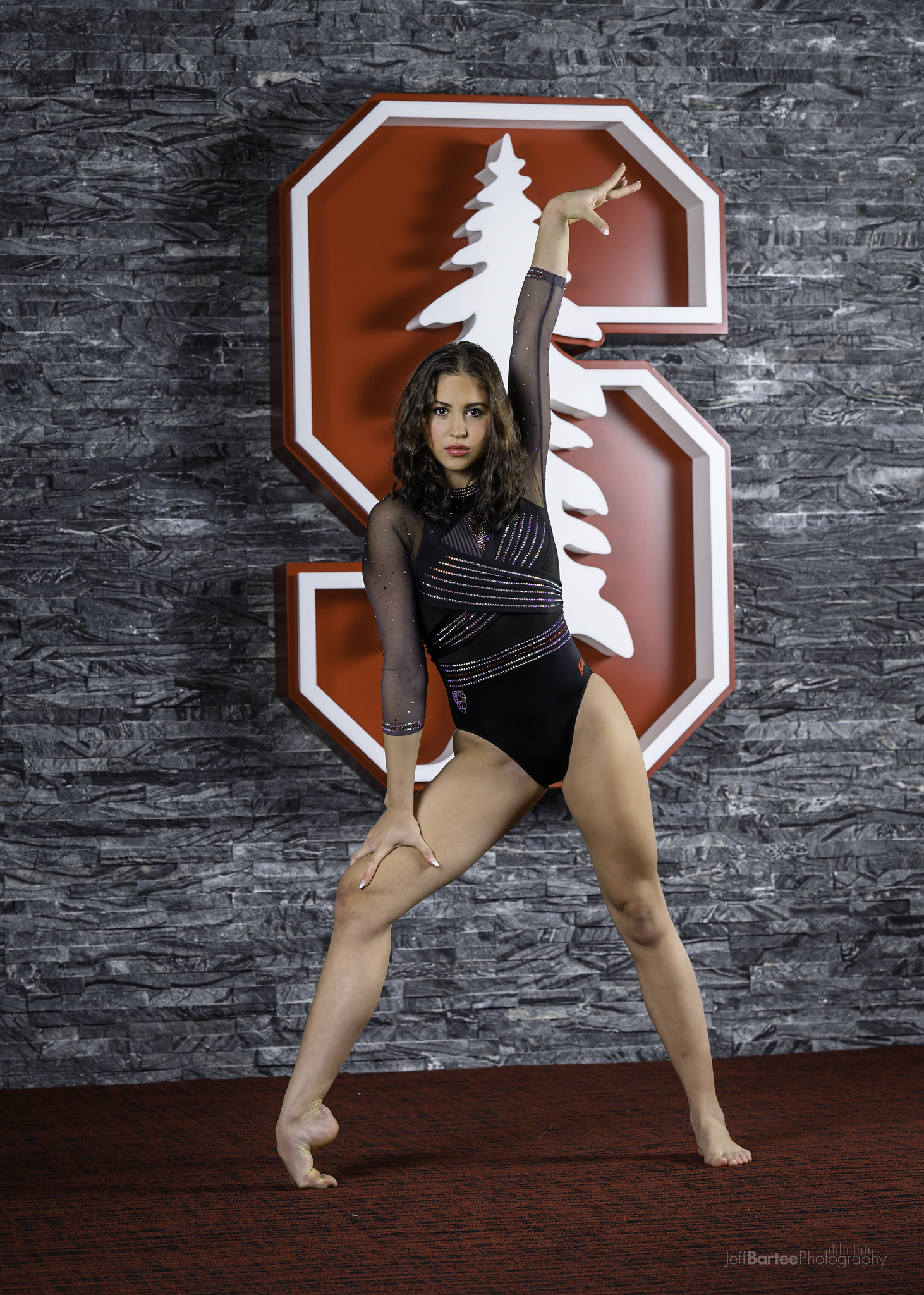
By: Janelle Olisea
While most 18-year-olds are busy finishing high school, Filipina gymnast Levi Ruivivar spends her days preparing for the biggest athletic competition in the world: the 2024 Olympic Games. Making history as the youngest Filipina gymnast to compete in the Olympics and the youngest athlete for Team Philippines this year, Ruivivar said this is only the beginning of what she hopes to accomplish.
A former USA Elite Nation Team member, Ruivivar switched to representing the Philippines in 2022. As a Filipino-American, she viewed this transition as an opportunity to connect with her Filipino heritage and honor her late grandfather who she said always told stories about the Philippines growing up.
“Everyone in the Philippines has been so welcoming and kind,” Ruivivar said. “[Their] energy helps keep me motivated and feel like I’m not doing it for myself, but for them as well.”
The Philippines has not sent women gymnasts to represent the country in nearly six decades. Ruivivar said she feels honored to be a part of this representation as she competes in the all-around event.
When she’s not training six days a week and traveling internationally for her competitions, Ruivivar looks forward to starting her freshman year at Stanford in the fall and competing for the university’s gymnastics team.
Sanoa Olin, Canada, Surfing

By: Anna Levenberg
Inspired by her mother and older sister, Sanoa Olin began surfing when she was a young child and competed in her first international competition when she was only 11 years old. Now 18, the Canadian is gearing up to compete in the Olympics’ surfing competition to be held in Tahiti. While the main Olympic events will be in Paris, surfing will take place on the largest island of French Polynesia.
Being from Tofino, Vancouver Island makes Olin a special kind of athlete: she’s a cold-water surfer. Olin has to wear a thick wetsuit and brave the frigid winter months. But it’s worth it. Cold-water surfing is important to Olin because it takes her places where she feels connected to the ocean and its wildlife.
“It’s just how I was raised,” she said. The temperature can make it “tougher to be motivated at times,” but she says it’s “equally as special.”
The surfers will be at the mercy of Teahupo’o, one of the most famous waves in the world. The waves can be amazing in the right conditions, but the shallow reef beneath can make the ride a dangerous one too. Sometimes, Teahupo’o is so large that surfers need to be towed into the wave by a jet ski.
The surfing competition is scheduled to run from July 27th to 31st. But no one knows how big Teahupo’o will be on these days, so the surfers will have until August 4th to compete if the conditions are poor at the end of July. She is the only Canadian. And one of only 24 women – and 24 men – competing in the surfing event this summer in Tahiti. This may seem like a lot of pressure, but Olin is excited.
“Qualifying alone this year was a huge achievement,” she said.
Ron Polonsky, Israel, Swimming
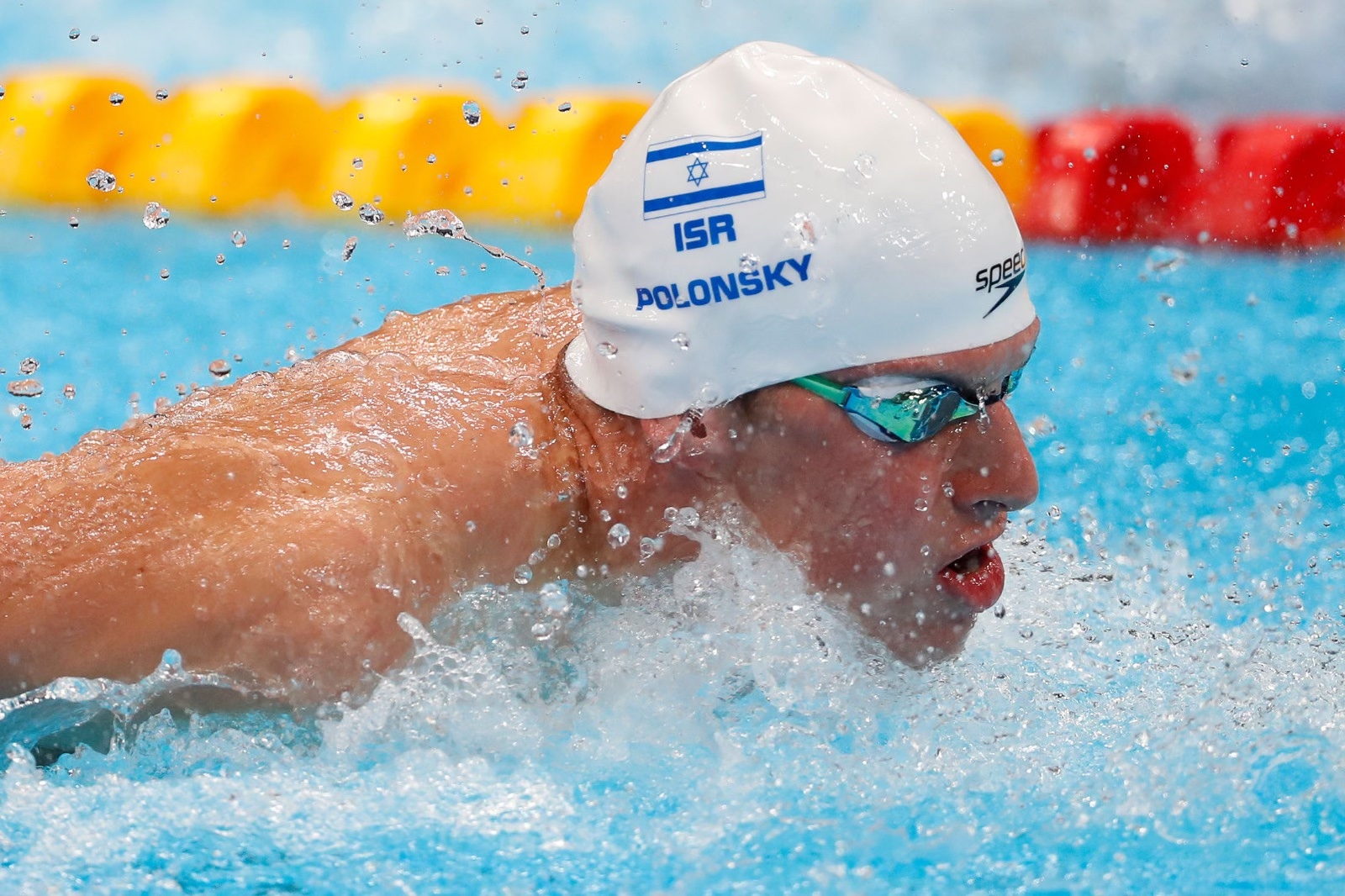
By Valencia Xu
For most Israelis, serving their country means at least two years of military service right out of high school. For Ron Polonsky, serving his country meant swimming for Israel at the 2020 Tokyo Olympics.
“I think that’s my military service,” Polonsky said. “That I went to the Olympics with the Israeli flag on.”
By making the Israeli national team in high school, Polonsky was able to gain an “outstanding athlete” status and continue to swim and train during his post-high school period of military service, rather than being assigned to combat or intelligence.
For those athletes who are not able to attain this status, most end up having to give up their sports in order to serve. Polonsky, now 23 years old, qualified to swim in Tokyo in the 2020 Olympics and swam a personal best there in his main event, the 200-meter individual medley, where one completes one lap each of all four strokes: butterfly, backstroke, breaststroke, and freestyle.
Currently swimming for the Stanford University Men’s Swimming team, Polonsky is hoping to return to his second Olympics this summer in Paris, with the Israeli Olympic Trials coming up June 5-8 in Israel. To qualify, he will have to meet the FINA (international swimming federation) standard time in his event, while also having one of the top two times amongst all Israeli swimmers.
While acknowledging how the topic of representing his country may carry with it far different implications today in light of the Israel-Hamas war, Polonsky still is hopeful and excited about the prospect of swimming in a second Olympics.
Ousseni Bouda, Burkina Faso, Soccer
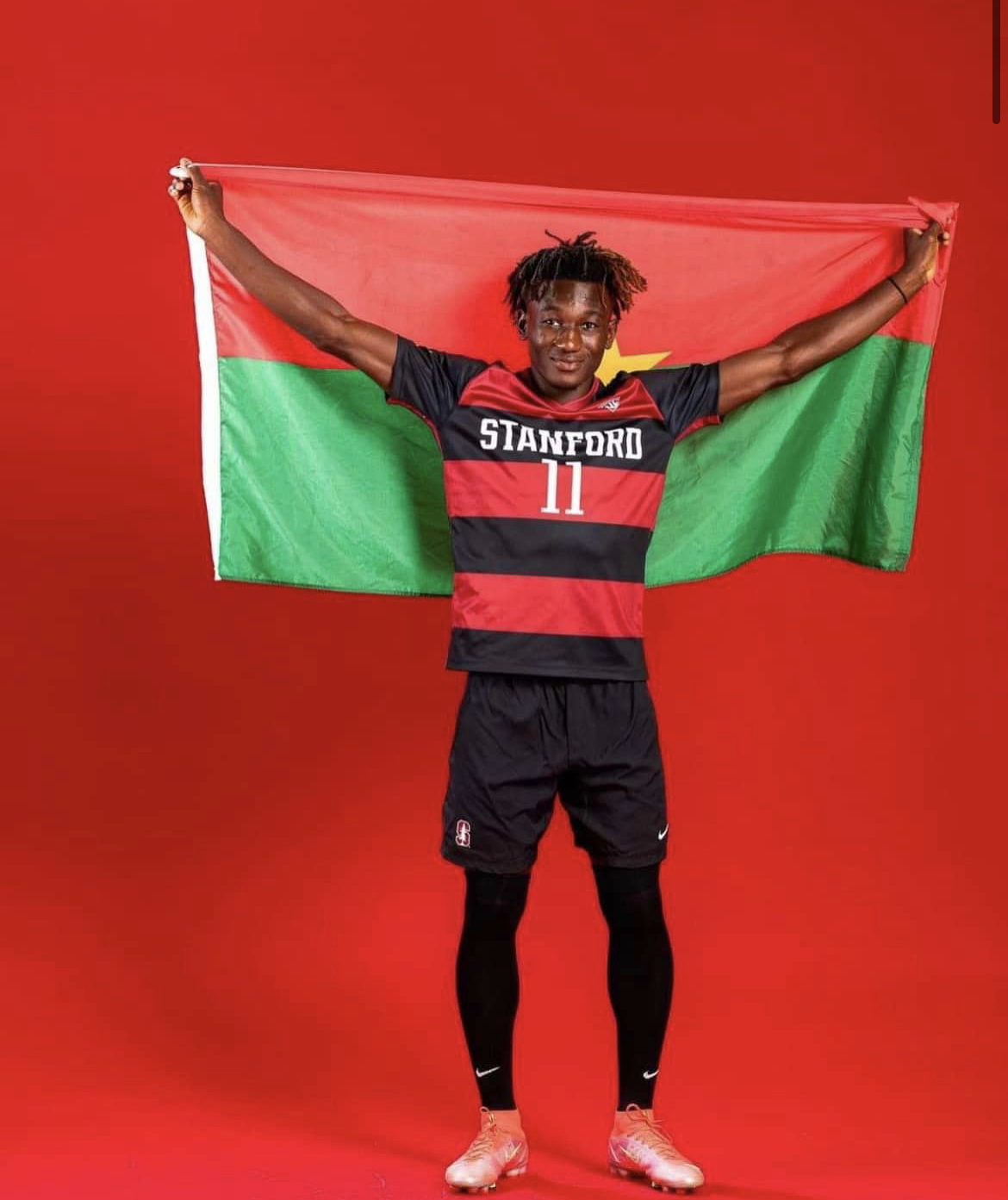
By: Audrey Suarez
As a kid, Ousseni Bouda would make soccer balls out of plastic and play the game any chance he could get. From Burkina Faso, Bouda was recruited by Right to Dream, a program that scouts children from West Africa to play soccer in the US and eventually signed with Stanford University.
Bouda, 24, is one of the country’s top soccer players. He plays professionally for the San Jose Earthquakes. But because Olympics soccer is an under-24 tournament, and it only allows each team to have a maximum of three players who are 24 or older – he wasn’t scouted this year.
The Burkina Faso team, however, is scheduled to go to the Olympics and Bouda will cheer from home in the Bay Area.
Bouda credits his success to his strong foundation growing up in a “fighting environment,” which is fueled by the “limited opportunities” in Burkina Faso. He describes the country as a “beautiful country. People love soccer there. It’s more than a sport, it’s part of the culture.”
Jonathan Tan, Singapore, Swimming
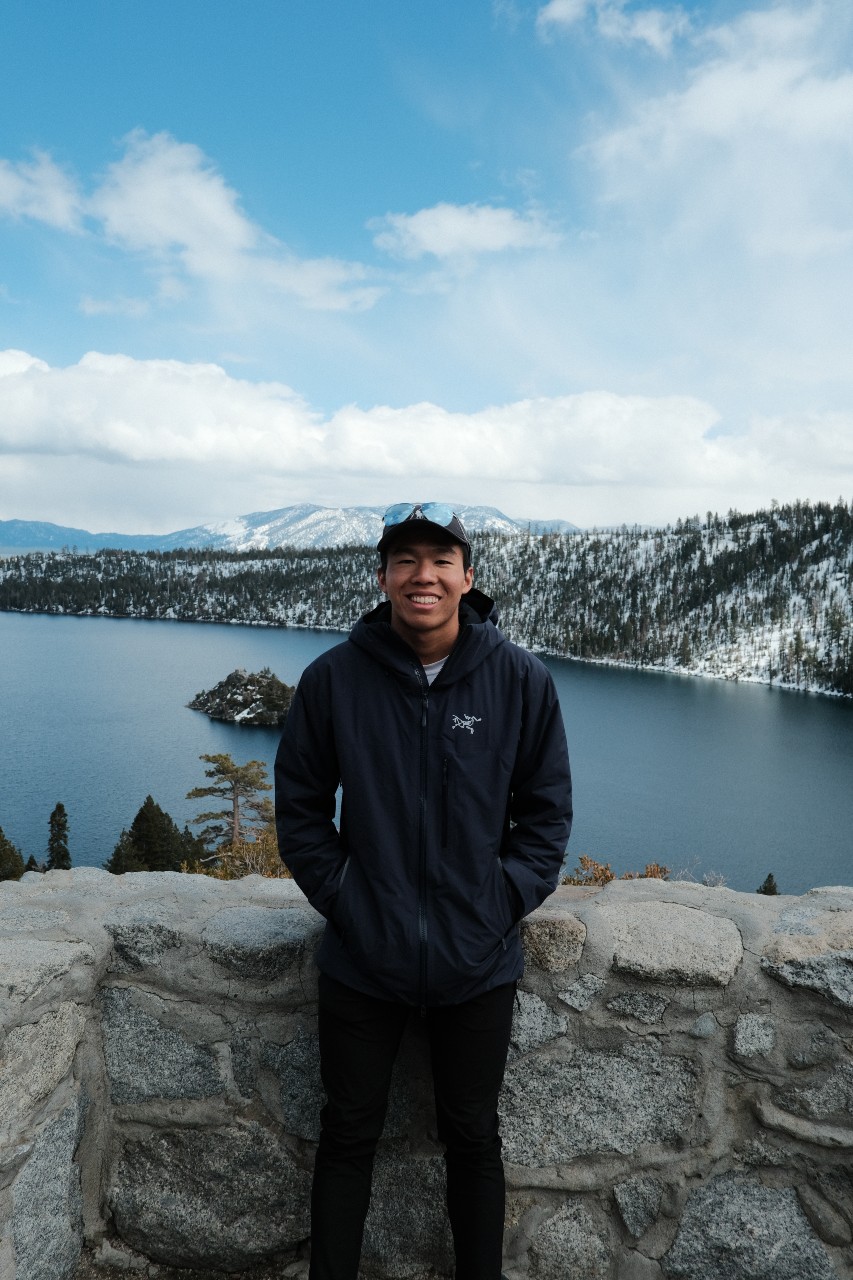
By Guilherme Guerreiro
Jonathan Tan, a 22-year-old from Singapore, knew he wanted to be a swimmer early in his life. Learning how to swim as a child originally for “safety reasons,” he quickly found he was faster than his peers, and sometimes even the older kids. When he was a bit older, he finally took the plunge and became a professional.
With impressive showings in national and international competitions, Tan felt ready in 2021 to aim for every athlete’s dream: the Olympics. However, in his qualifying event for the Tokyo Olympics, he missed the cut by 0.1 seconds. Demoralized, Tan learned to build himself back up from scratch.
After doing Singapore’s mandatory 2-year military service, he headed to the US to further improve his abilities. At Stanford, he found support for his goals, joining the swim team and competing alongside the best in the world. Here, he also had a chance to explore his non-swimming-related interests, deciding to major in economics.
As the 2024 Paris Olympics got closer, Tan saw another opportunity to achieve his dreams. Taking a leave of absence to focus on training, Tan competed in the 2023 Southeast Asian Games and finally qualified for the Olympics 50m freestyle. With this, he will be one of the few Singaporean swimmers at the competition. While he is very happy, he more than anything hopes to “inspire the future generations after me” to dream big and aim for the top.
Raiber Rodríguez Orozco, Venezuela, Greco-Roman Wrestling

By Camila Fermin
At 33 years old, Raiber Rodríguez Orozco is training to compete in Greco-Roman wrestling at the Paris Olympic Games. Born and raised in Barinas, Venezuela, Rodríguez temporarily resides in Spain, where he trains with the rest of the qualifying wrestlers from the Venezuelan national wrestling team.
Being in Spain allows Rodríguez to attend competitions in Hungary, Armenia, and other parts of Spain as a training strategy. After qualifying in February, he vowed to stay focused throughout his journey. “I only train, eat and rest, and always think positively,” Raiber said as he hopes to enjoy the experience while also seeking results — the medal he did not win in Rio.
Despite keeping a focused mind, his daughters stay at the forefront of his life. “Every day, when it hits noon here in Spain, I video call them while they get ready for school.” His daughters are ten, six, and three years old, “they are the engine that keeps me running.”
While his family motivates him, his community supports him. Rodríguez talks about his childhood and the time he spent running around with the neighbors from his block. “We were a group of ten kids…we would go to the local gym to play.” At this gym, Rodríguez found wrestling, “I had way too much energy back then.” At twelve years old, despite his short training time, Rodríguez won his first medal at a national youth competition.
Rodríguez is returning after a seven-year hiatus, a break he took following his daughter’s birth. He fell in love with his sport once again through conversations with an old friend.
